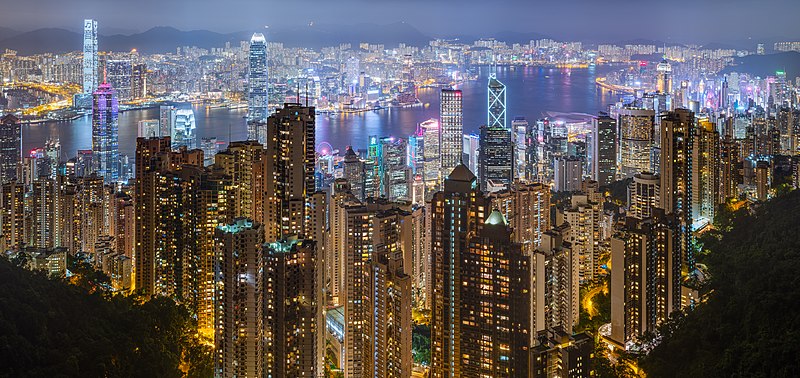Since the Sino-British Joint Declaration in 1984, Hong Kong has been operating under the “one country, two systems” policy. This policy intended to ensure Hong Kong’s autonomy from Beijing until 2047. But on several occasions, the Chinese Communist Party (CCP) prematurely interfered with Hong Kong. In June 2019 the CCP introduced the controversial extradition bill which eroded Hong Kong’s judiciary rights and became the catalyst for the 2019-2020 protests. As a response to the protests, the CCP passed the security law, which granted Beijing the power to shape life in Hong Kong and effectively curtail freedom of speech.
The British government has called the security law a clear violation of the “one country, two systems” policy and in response, has opened a six-year pathway to British citizenship for holders of British National (Overseas) passports (BN(O)) – a special visa category created for Hong Kong nationals before the 1997 transfer of power. Although this visa does not account for all Hong Kongers, it does grant citizenship to a large scope of them. Out of 7.5 million, 5.2 million people are eligible for it. Will this set precedent for more open UK immigration policies in the future?
Rewind to 2016, when the UK unanimously voted to leave the European Union (EU), after being sold on a campaign that vouched to decrease immigration in the UK. Much of this anti-immigration rhetoric emanated from the same politicians who are now running the government. In one campaign missive, Boris Johnson, Priti Patel, and Michael Gove stoked fears that rising numbers of southern European immigrants would “put further strain on schools and hospitals,” and that “class sizes will rise and waiting lists will lengthen if we don’t tackle free movement.”
Yet in June 2020, Prime Minister Boris Johnson announced the visa pathway for millions of Hong Kongers and denoted it as “one of the biggest changes in our visa system in history.” Likewise, Home Secretary Priti Patel, said she looked forward to welcoming Hong Kongers “to our great country.”
This is a stark contrast to when these same politicians warned darkly of an influx of foreigners and campaigned against what Patel described as “uncontrolled migration” from the EU. But, welcoming Hong Kongers has become one of the few issues in British politics that commands bipartisan support, uniting opposition Labour, Green Party and Scottish National Party members with the hawkish, anti-China wing of the Conservative party.
But is Hong Kong the UK’s exception to the rule? According to Jonathan Portes, a Professor of Economics and Public Policy at King’s College London, there is a feeling of colonial “indebtedness” to the people of Hong Kong. The UK Government may feel morally obliged to defend Hong Kong from Chinese authoritarianism. On top of this, over the past year the UK’s attitude to China has hardened. The UK has barred Chinese telecoms giant Huawei from playing a part in the country’s 5G network, and has been vocal with its criticism of Beijing for human rights abuses against Uyghurs and other minorities in the Xinjiang region.
Although this new visa scheme does offer a remarkable amount of Hong Kong citizens the opportunity to resettle permanently in the UK, there is still a lot of divisive and visceral rhetoric that surrounds immigration. There is some potential that this scheme will promote a more positive debate on immigration, but there is no telling whether we will see more open immigration policies in the future.
Sophie Denham
Image source: Wikimedia Commons

